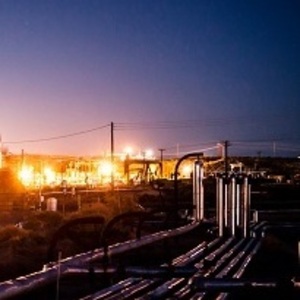HollyFrontier to convert Cheyenne refinery to renewable diesel

June 3, 2020
BY HollyFrontier Corp.
HollyFrontier Corp. announced June 1 that its board of directors has approved a plan to convert the Cheyenne refinery in Wyoming to renewable diesel production and to construct a pretreatment unit (PTU) located at the Artesia refinery in New Mexico. Including the previously announced renewable diesel unit at the Artesia refinery, HollyFrontier is expected to have a combined capacity to produce more than 200 MMgy of renewable diesel and pretreat more than 80 percent of its feedstock. HollyFrontier expects to invest between $650 million and $750 million in its renewables business, with an expected aggregate internal rate of return of 20 to 30 percent.
“Demand for renewable diesel, as well as other lower carbon fuels, is growing and taking market share based on both consumer preferences and support from substantial federal and state government incentive programs,” said Mike Jennings, president and CEO of HollyFrontier. “This represents an exciting opportunity to enhance both the profitability and environmental footprint of HollyFrontier through organic investment. Today’s announcements lay the groundwork for an integrated renewables business at HollyFrontier, including multiple renewable diesel plants with feedstock flexibility. After 86 years as a petroleum refinery, Cheyenne will take on a new challenge. We realize that this decision affects many employees, their families and the community. We are thankful to all of our colleagues in Cheyenne and will work closely with those impacted by this decision.”
Conversion of Cheyenne refinery
Advertisement
Advertisement
With expected capital spending of $125 million to $175 million, HollyFrontier intends to repurpose Cheyenne’s current footprint and a portion of its existing assets to produce approximately 90 MMgy of renewable diesel. HollyFrontier expects the project will be completed in first quarter 2022 and generate an internal rate of return of 20 to 30 percent.
Pretreatment unit at Artesia refinery
HollyFrontier also plans to construct a PTU that will process more than 80 percent of the feedstock for both of HollyFrontier’s renewable diesel plants. The PTU is expected to provide feedstock flexibility, mitigating single feedstock risk and generating value through the use of lower carbon intensity feed.
HollyFrontier estimates the capital cost of the PTU to be between $175 million and $225 million and the in-service date to be in the first half of 2022. The PTU has an expected internal rate of return of 10 to 15 percent but is intended to protect the returns of HollyFrontier’s renewables business against potential volatility in the feedstock markets.
Advertisement
Advertisement
Petroleum refining in Cheyenne
The conversion to renewable diesel production will result in HollyFrontier ceasing petroleum refining and reducing the workforce at the Cheyenne refinery. This decision was primarily based on the expectation that future free cash flow generation in Cheyenne would be challenged due to lower gross margins resulting from the economic impact of the COVID-19 pandemic and compressed crude differentials resulting from dislocations in the crude oil market, coupled with forecasted uncompetitive operating and maintenance costs and the anticipated loss of the U.S. EPA’s small refinery exemption.
Based on the initial review of its long-lived assets, over the second and third quarters of 2020, HollyFrontier expects to record noncash charges of $225 million to $275 million for impairment and depreciation charges and $3 million to $12 million for asset retirement obligations. Additionally, over the next 12 months, HollyFrontier anticipates pre-tax costs of $25 million to $45 million for decommissioning assets and $5 million to $7 million for severance obligations and proceeds of $50 million to $70 million from the liquidation of working capital.
Related Stories
Neste and DHL Express have strengthened their collaboration with the supply of 7,400 tons (9.5 million liters) of neat, i.e. unblended, Neste MY Sustainable Aviation Fuel to DHL Express at Singapore Changi Airport starting July 2025.
CoBank’s latest quarterly research report, released July 10, highlights current uncertainty around the implementation of three biofuel policies, RFS RVOs, small refinery exemptions (SREs) and the 45Z clean fuels production tax credit.
The USDA significantly increased its estimate for 2025-’26 soybean oil use in biofuel production in its latest World Agricultural Supply and Demand Estimates report, released July 11. The outlook for soybean production was revised down.
The U.S. Energy Information Administration maintained its forecast for 2025 and 2026 biodiesel, renewable diesel and sustainable aviation fuel (SAF) production in its latest Short-Term Energy Outlook, released July 8.
XCF Global Inc. on July 10 shared its strategic plan to invest close to $1 billion in developing a network of SAF production facilities, expanding its U.S. footprint, and advancing its international growth strategy.
Upcoming Events










